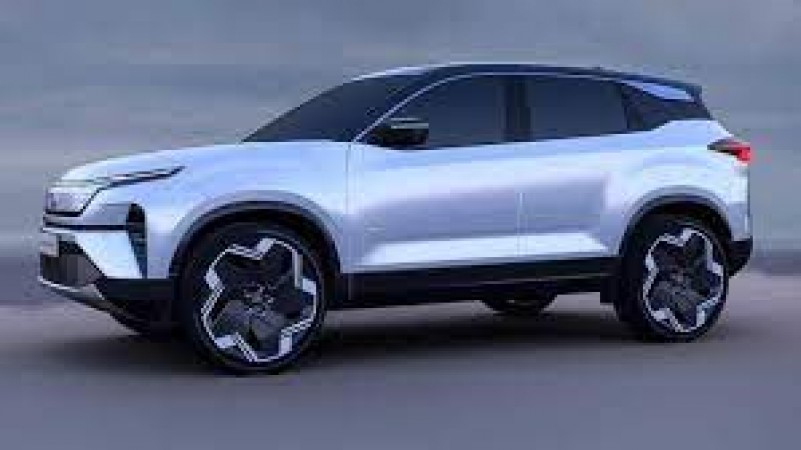
The automotive industry in India is on the brink of a significant transformation, and all eyes are set on the electrifying entry of electric cars. As the world moves towards sustainable practices, the demand for electric vehicles (EVs) in India is gaining unprecedented momentum. The shift in consumer preferences is evident, driven by environmental concerns and advancements in technology.
Electric cars represent a paradigm shift in the automotive landscape. The traditional reliance on fossil fuels is gradually giving way to cleaner and more sustainable alternatives. The rise of electric cars is not just a trend; it's a transformative force reshaping the industry's future.
Renowned global automotive giants are gearing up for a grand entry into the Indian electric car market. The prospect of market leaders like Tesla making a mark in India has sparked immense interest. The competition among these giants promises an exciting future for the electric car segment.
All ears are perked up for the potential arrival of Tesla, the trailblazer in electric car technology. Elon Musk's brainchild has revolutionized the global electric car market, and expectations are high for its impact on Indian roads. The anticipation is not just about cars but also about the potential transformation of the Indian electric infrastructure.
Tata Motors and Mahindra Electric have been at the forefront of the electric revolution in India. These homegrown companies have been investing heavily in research and development to bring forth groundbreaking innovations. The question now is how these companies will shape the electric future of the nation.
One of the critical factors for the success of electric cars is a robust charging infrastructure. The lack of an extensive charging network has been a hindrance to the widespread adoption of EVs. As the electric wave surges, the focus on developing a comprehensive charging infrastructure becomes paramount.
The Indian government's push for a cleaner and greener future includes various incentives and policies to promote electric vehicles. Subsidies, tax benefits, and other initiatives aim to create a conducive environment for the growth of the electric car market. Understanding these policies is crucial for both manufacturers and consumers.
A common misconception surrounding electric cars is their affordability. Dispelling this myth is essential to make EVs accessible to the masses. Analyzing the cost dynamics, including initial investment, maintenance, and operational costs, will provide a clearer picture of the economic viability of electric cars.
Range anxiety remains a significant hurdle for potential electric car buyers. The fear of running out of charge before reaching the destination is a genuine concern. How are manufacturers addressing this issue, and what technological advancements are in the pipeline to enhance the range and efficiency of EVs?
The heart of any electric vehicle is its battery. Exploring the challenges and breakthroughs in battery technology that will shape the future of electric cars is essential. From improving energy density to reducing charging times, innovations in battery technology are critical for the success of electric vehicles.
Analyzing the current market dynamics and predicting how consumer behavior will influence the growth of the electric car market in India is vital for manufacturers and investors. Understanding the preferences, concerns, and expectations of the Indian consumer will guide strategies for market penetration.
Navigating the regulatory landscape surrounding electric vehicles is crucial. From emission norms to safety standards, understanding and complying with regulations is pivotal for manufacturers. The regulatory framework plays a significant role in shaping the industry and ensuring the safety and sustainability of electric vehicles.
How are traditional automakers adapting to the electric wave? The shift towards electric vehicles poses a challenge to companies deeply rooted in internal combustion engine technologies. Exploring their strategies to stay relevant in a rapidly evolving market is critical for assessing the industry's overall trajectory.
Partnerships between traditional automakers and tech companies are emerging as a key strategy to foster innovation and accelerate the electric revolution. Collaborations offer a unique blend of automotive expertise and technological advancements. Examining these partnerships provides insights into the collaborative efforts shaping the future of electric mobility.
India's ambitious plan to transition towards electric mobility by 2030 is a bold step towards a sustainable future. Dissecting the goals and challenges of this electrifying journey provides a roadmap for stakeholders. Understanding the vision and milestones set for 2030 is pivotal in aligning efforts towards a common goal.
While electric cars dominate discussions, examining the broader scope of sustainable transportation is imperative. E-bikes, e-rickshaws, and public transport initiatives contribute significantly to reducing carbon emissions. Exploring these avenues offers a holistic view of sustainable transportation beyond electric cars.
The integration of green energy sources with electric vehicles is a sustainable approach towards reducing the overall carbon footprint. Exploring how renewable energy can power electric cars contributes to the broader goal of achieving eco-friendly transportation.
Insights from industry experts and market predictions play a crucial role in understanding the future trajectory of the electric car market in India. Analyzing expert opinions provides valuable information for manufacturers, investors, and consumers alike.
Real stories from electric car owners offer a glimpse into the practical experiences, challenges, and joys of owning and driving electric vehicles. These testimonials provide authentic narratives that can influence potential buyers and shape perceptions.
The buzz surrounding the official launch events of electric cars is palpable. Capturing the excitement and anticipation in the air provides a unique perspective on the public's reception and expectations surrounding these launches.
In conclusion, the electric revolution in India invites everyone to join the movement towards a sustainable and eco-friendly future. Embracing electric dreams means actively participating in the transition to cleaner and greener transportation. As the electric wave sweeps the nation, it's time to buckle up for an electrifying adventure into the future.
Indian company launches a great budget smartphone for less than ₹ 7000, see beautiful pictures here
World Cancer Day 2024: Revolutionizing Cancer Diagnosis with ArtificiaI Intelligence